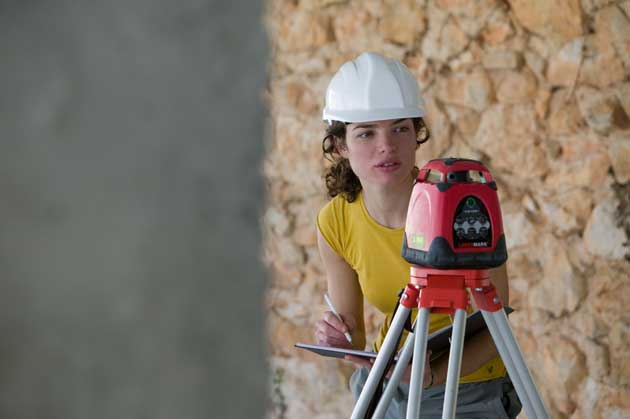How to be a lord of all you survey
Others may get the glory, but surveyors actually make amazing buildings happen

It came as no surprise to the building industry when the spectacular refurbishment of St Pancras International station in London scooped the Royal Institute of Chartered Surveyors' prestigious Project of the Year Award last month.
The revamp and extension of the Grade I-listed station is part of an £800m transformation, turning the terminal into one of the largest passenger interchanges in Europe and the London gateway for Eurostar. The building had been nicknamed "the cathedral of the railways" but fell into decline with the deterioration of the surrounding area. Now it's a grand, romantic, glass-topped landmark.
The RICS Awards began in 1990 to recognise outstanding architectural and regeneration projects. Accolades such as this often credit the architects who have the artistic vision or the engineers who fathom how to make it work. The St Pancras development has encompassed key structural changes in the form of 15 platforms and a new flat-roof train shed. It was a mammoth task, but little credit is normally offered to the surveyors who, to all intents and purposes, make such amazing edifices possible.
So what is chartered surveying all about? One surveyor explains it as "a lot of meeting and greeting to discuss residential requirements". But it's not all schmoozing. "Then you have the preparation work needed to bring sites to market, liaising with planners, architects, lawyers and consultants," says Jack Simmons, a chartered surveyor at the London real-estate firm Jones Lang LaSalle. "You need to understand the whole dynamics of a site."
A chartered surveyor is the one who pulls it all together, believes Simmons, who decided early on that he would go into the building industry, and completed a BA in housing and development at the University of the West of England. His course carried RICS accreditation, which exempts students from certain subsequent professional qualifications.
The RICS is the leading organisation in the world for the property, land and construction industries, with members operating in 146 countries. Most RICS-accredited graduates will follow the assessment of professional competence, the route to chartered membership, once they have started work.
Simmons, who has worked at Jones Lang LaSalle for seven years, wanted to go into residential property because, he says, it's as much about people as buildings. "You really never know who you're going to meet. Our clients are private individuals, charities, institutions, hoteliers – all sorts. We see some really colourful characters." A chartered surveyor differs from a technical surveyor in that the role is much more strategic, coordinating entire projects and managing other professionals. "If you want to hold a theodolite [an instrument for measuring angles], then become a quantity surveyor," says Simmons.
"Doing an MA is probably the best and easiest way to do it," says Oliver Broom, 28, who works in residential investment for Knight Frank, the UK-based global property consultancy firm. With no formal qualifications in property, he graduated in modern languages from the University of Durham in 2003, before doing an MA in property valuation and law at Cass Business School at London's City University.
He has now passed his RCIS exams after two years of six-month placements within different Knight Frank departments, studying for the assessment of professional competence. All RICS members are thereafter required to maintain a programme of continuing professional development each year.
"The key to the chartered surveyor's job is managing relationships," says Broom. "It's about negotiating." Like Simmons, Broom thinks the people are paramount.
"I meet the most amazing clients – entrepreneurs from all walks of life," he says. "It's a really fascinating job. And I get to work on some fantastic buildings. It's the best of both worlds."
How to get in
* Decide what type of surveying you want to do through work experience
* Jack Simmons: "Use it to find out whether you would prefer to work on the client side or the advisory side."
* Do an RICS-accredited degree or a postgraduate RICS course. For details, visit www.ricscourses.org
* Become a technical surveyor or surveying technician, which doesn't require a degree, and do the assessment of professional competence later.
Join our commenting forum
Join thought-provoking conversations, follow other Independent readers and see their replies
Comments